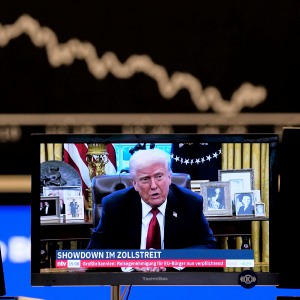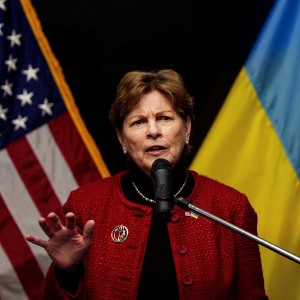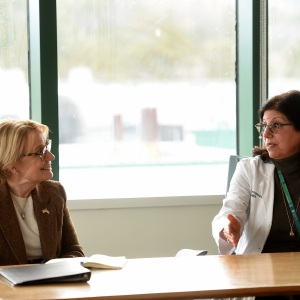Column: Divided Dartmouth still needs a course correction
| Published: 07-19-2024 10:19 AM |
In 2004, consulting firm Booz Allen Hamilton named Dartmouth College one of the world’s 10 most enduring institutions, along with Oxford University, the American Constitution and the Modern Olympic Games, for their abilities to adapt and change.
Among the characteristics considered were innovation, leadership, information flow, adaptability, risk structure, culture and values. In the news release, Booz Allen Hamilton summarized why Dartmouth was selected.
“Dartmouth College demonstrates by its often-challenged yet ultimately triumphant existence a set of internal systems for managing risk. Dartmouth has literally had to fight for survival from its earliest days, time and again emerging a stronger, more viable institution, whether facing a legal threat to the college charter or an internal threat from misguided leadership. Its risk structure has enabled and empowered this institution to survive these crises and emerge the stronger and the better for it.’’
In other words, it is not that our alma mater is impervious to change; rather, it pursued change and navigated changing times, from 1769 to the present, by adhering to its highest ideals.
The Dartmouth community has a long history of taking a stand — through public acts of dissent and other means, such as calls for divestment — and the community has been met with the support of several of its presidents, most notably President John Kemeny’s response to the Kent State massacre in May 1970, in which he stated:
“We are meeting tonight over the air at a time of one of the most troubled periods in American history… I was asked about the question of institutions and individuals taking stands on controversial issues. I reaffirmed the stand that I have consistently held over the years: that while institutions as such cannot effectively take stands on controversial issues, individuals must take stands, and I made it clear that the President of Dartmouth College would be no exception to that rule.”
In order to protect the Dartmouth community from a potentially lethal outcome (as witnessed at Kent State) President Kemeny canceled classes for the remainder of the week and urged “all sections of the community to participate in intensive discussions as to how this community can best join hands in a united manner.”
In 1986, President McLaughlin mirrored President Kemeny’s approach, working with the Dartmouth Community for Divestment protesters despite the fact that his administration said “it would prefer to see the shanties removed but would tolerate them as long as they had an educational purpose.”
Article continues after...
Yesterday's Most Read Articles
With the appointment of Sian Leah Beilock as the first female president of the last Ivy to admit women, we — the signers of this op-ed are a coalition of Dartmouth women alumnae leaders across generations, races, and sexual identities, beneficiaries of institutional change — had much hope for positive change without crisis.
Last fall, President Beilock advocated for “brave spaces” and instituted Dartmouth Dialogues to facilitate “conversations and skills that bridge political and personal divides.” This project was tested shortly after its inception, on Oct. 7, when faculty from the separate Jewish and Middle East Studies departments came together quickly to host sessions with students to make sense of the history and tensions leading up to the attacks that initiated the on-going Israel-Hamas war. This approach demonstrated our shared values for meaningful dialogue among all Dartmouth communities — especially our Jewish, Israeli, Palestinian and Muslim community members — reaffirming the need to seek peaceful solutions while recognizing the pain and suffering on both sides of this conflict.
As alumni watching this situation unfold from outside campus, we had great hope for the Dartmouth community to weather the turmoil facing our country.
But all this changed on May 1.
As did their counterparts at many colleges and universities across the United States on May 1, Dartmouth students protested against the horrific loss of human life in Gaza and to seek divestment of Dartmouth’s endowment from the instruments of war. As with nearly 97% of all protests across the U.S., Dartmouth’s May 1 protest was peaceful — there was no physical violence to people or property committed by the protesters or against the protesters. As was the case at many universities, the administration called police to remove protesters.
Dartmouth College has had 19 presidents since 1769. None before has called law enforcement to campus to conduct a mass arrest of nonviolent protest participants.
We are inspired to write this op-ed because we want Dartmouth and President Beilock to succeed. We want President Beilock to truly model “brave spaces” and dialogue by engaging in the difficult conversations needed for community healing and building the bridges for dialogue and workable solutions even when emotions are high and views are on opposite sides. It will take time but it’s worth doing.
Given her actions on May 1 and despite our alma mater’s track record for adaptability in times of crisis, we are deeply concerned that Dartmouth will not be able to adapt once more to this crisis.
As alumni, we are witnessing a fallout at a scale our community has never seen before: With more than 89 individuals arrested, a majority of students voted no confidence in the president, the faculty censured the president, and competing petitions, statements, and op-eds from all sides have been published nearly every day since the arrests, it is clear that our community is divided.
What has us most troubled is the physical and psychological toll on the arrested students.
We’ve heard of the physical pain from zip ties being too tight and the verbal abuse the police hurled at arrested students. We know of seven Asian American students, mostly women, who have been harassed by other students in the aftermath. Nine Native American students at Dartmouth College were arrested and faced social isolation from the broader Dartmouth community. They endured verbal abuse, being labeled “racists” by their peers, which led one student — a child of a Native American Dartmouth alumnus and a sibling of two former Native American Alumni Association of Dartmouth (NAAAD) co-presidents — to take a personal leave due to continuous harassment. In response to the arrests, the NAAAD board recommended relocating the annual powwow, traditionally held on the Green to Leede Arena. This move represented a setback, as it had taken decades to build a positive relationship between the College and the Native American community, culminating in the annual celebration of their heritage on the historic Green.
Arrested students are not the only ones who are hurting. We’ve heard of the fear of seeing officers in riot gear on campus. Then there is the bitter pill of the Dartmouth Outing Club’s vans being used to haul away protestors.
Our community is hurt and divided.
In light of this, we believe these students have been punished enough for violating the college’s internal policies related to structures on the Green. We are grateful the administration has taken some steps to mitigate the harm such as not enforcing any disciplinary, academic or financial aid actions against students and actively getting the bail order suspended so 13 graduating seniors could fully participate in commencement this June.
However, to heal the community, the president and the administration need to do more.
President Hopkins said “The college which is overcautious in its method or overly fearful of making a mistake in its policy withers intellectually and dies spiritually even more promptly than the college which is guilty of mistaken boldness suffers grievous harm. Progress should be unceasingly sought.”
College presidents come and go, but their legacies linger. What will be the lasting impact of President Beilock’s decision to call law enforcement on members of our community? Who will ever be brave enough to speak truth to the powers that be at Dartmouth in the wake of the silencing of that night? Our motto is vox clamantis in deserto, meaning “the voice crying out in the wilderness.” Will Dartmouth become vox tacita in deserto, a voice silenced in the wilderness?
Will May 1 forever be Beilock’s legacy? Can Dartmouth correct course and recover from this?
We ask the administration to embrace the spirit of Dartmouth and drop the charges so progress can be unceasingly sought in healing our community. And, we implore President Beilock to do everything in her power to ensure the equal protection of all students, their right to dissent nonviolently, and to create fundamental community agreements that protect everyone from harm.
Carol Muller, Dartmouth College Class of 1977; Maria Christine Cole, 1984; Stephanie A. Westnedge, 1992; Christine Benally Peranteau, 2006; Holly Lynn Patterson, 2019; Rachel Perez, 2023, are members of Women of Dartmouth, an alumni organization, and represent a wide range of backgrounds.






 Editorial: Time is running out for American democracy
Editorial: Time is running out for American democracy Editorial: Jeanne Shaheen blazed a trail in politics
Editorial: Jeanne Shaheen blazed a trail in politics Column: Federal funding for medical research puts America first
Column: Federal funding for medical research puts America first Editorial: MLB resumes all-American pursuit of new billions
Editorial: MLB resumes all-American pursuit of new billions
